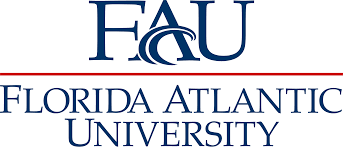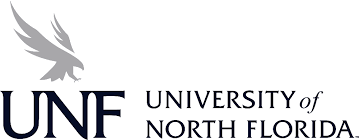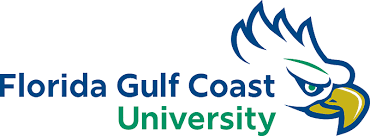Florida’s universities offer world-class education in supply chain and logistics equipping future business leaders with the requisite skills to navigate a rapidly evolving trade and commerce environment. Florida is thus a sought-after destination for prospective students pursuing bachelors, masters and PhD education in supply chain management and logistics.
Students can choose modules on aviation statistics to network optimization and game theory applications offered by world-class institutions like the University of Florida’s Warrington College of Business and the University of North Florida’s Coggin College of Business.
Supply Chain Management Program Quick Facts — Florida
- Number of Supply Chain Degree Programs in Florida: 20
- AACSB-Accredited Supply Chain Programs: 5
- Hybrid or Online Supply Chain Programs in Florida: 7
- Tuition Cost Range: $16,434 – $53,474
- Average Cost of Tuition: ~$30,000
Affordable Masters in Supply Chain in Florida
Tuition fees vary from state universities providing more flexible and affordable programs compared to private universities. Many public universities offer significant tuition discounts to Florida residents as compared to out-of-state students who can explore state-level and international scholarships and funding. Several Florida universities offer competitively priced master’s programs in supply chain management:
Saint Leo University
- 12 months
- Online + Campus
Program:
Master’s Degree in Business Administration – Supply Chain Global Integration Management
Format: On-campus/Online (12 months fast track)
Tuition: Approximately $12,000 per year plus other fees
Why We Chose This Program: Hands-on training opportunities available along with an optional accelerated program.
Florida Atlantic University
- 12 months
- Online + Campus
Program:
Master’s in Supply Chain Management
Format: On-campus/Online (12 months fast track)
Accreditation: AACSB
Tuition: Approximately $27,000 per year plus other fees
Curriculum Focus: Integration of courses on shipping and port management to blockchain and crypto asset analytics.
Why We Chose This Program: Serves South Florida trade zone with strong connections to local logistics industries.
University of West Florida – online
- 16 months
Program:
Master of Business Administration with an emphasis in Supply Chain Logistics Management online
Tuition: Approximately $16,434 per year (16 months)
Curriculum Focus: Combines core courses on transportation and materials management with critical thinking electives.
Why We Chose This Program: Research collaborations with professionals to identify solutions to real-world supply chain problems; hands-on training and internships in diverse industries.
AACSB Accredited Master’s in Supply Chain Programs in Florida
The Association to Advance Collegiate Schools of Business (AACSB) is a global standard-setting body for business education, strengthening the world’s business schools through accreditation, thought leadership, and transformative learning. AACSB-accredited institutions undergo comprehensive reviews of their faculty qualifications, research output, student learning outcomes, and industry engagement. As employers often prefer recruiting graduates from AACSB vetted programs, this accreditation has emerged as a hallmark of quality and thoroughness in education.
Supply chain or operations management courses are usually marginalized in business schools across the globe but AACSB accreditation of master’s programs in supply chain management have been instrumental in highlighting the importance of logistics in business education. In Florida, several prestigious institutions offer AACSB-accredited master’s programs in supply chain management, providing students with rigorous, industry-relevant education that prepares them for leadership roles in this critical business function.
University of Florida – Warrington College of Business
- 12-20 months
- Online + Campus
Program:
Master of Science in Informations Systems and Operations Management (Supply Chain Management Concentration)
Format: Full time; On-campus/Online (12-20 months)
Accreditation: AACSB
Tuition: Approximately $32,000 per year (for non-Florida residents) plus other fees
Curriculum Focus: Emphasizes analytics, AI, technology, business, and communication with a focus on real-world problem solving.
Why We Chose This Program: Graduate courses are organized in a modular system; high-placement rate in consulting, financial services, technology, and energy sectors.
University of North Florida – Coggin College of Business
- 12-20 months
- Online + Campus
Program:
Master of Science in Logistics and Supply Chain Management
Format: Full time; On-campus/Online (12-20 months)
Accreditation: AACSB
Tuition: Approximately $27,990 per year (for non-Florida residents) plus other fees
Curriculum Focus: Core business cores on transportation and logistics and electives on economic geography and GIS.
Why We Chose This Program: Strategic location of Jacksonville offers experiential learning opportunities and job prospects.
Florida International University
- 10 months
- Online + Campus + Hybrid
Program:
Master of Science in Logistics and Supply Chain Management
Format: Hybrid (On-campus and online sessions; 10 months)
Accreditation: AACSB
Tuition: Approximately $30,000 per year (for non-Florida residents) plus other fees
Curriculum Focus: Core business cores on logistics technology, data analytics and distribution modeling.
Why We Chose This Program: Builds technical knowledge of cutting-edge softwares and interpersonal skills.
Florida Institute of Technology
- 12-20 months
- Online + Campus
Program:
Master’s in Supply Chain Management
Format: Part time/Full time; On-campus/Online (12-20 months)
Accreditation: AACSB
Tuition: Approximately $44,990 per year (for non-Florida residents) plus other fees
Curriculum Focus: Comprehensive and well-rounded curriculum covering marketing to managerial statistics.
Why We Chose This Program: Flexible study plan supporting working students.
NSU Florida – H. Wayne Huizenga College of Business and Entrepreneurship
- 12 months
- Online + Campus
Program:
MBA in Supply Chain Management and Operational Systems
Format: On-campus/Online (12 months fast track)
Accreditation: AACSB
Tuition: Approximately $34,000 per year plus other fees
Curriculum Focus: Integration of courses on transportation logistics and business communication.
Why We Chose This Program: STEM-designated degree increases job employability.
PhD in Supply Chain and Logistics in California
Florida offers high-quality PhDs and Doctoral in Business Administration (DBA) in supply chain management, operations and logistics. These programs are intended to qualify candidates to perform research and teach at business schools. Executive doctoral programs are designed for working professionals and tend to be pursued for different reasons. Executive DBAs equip candidates to conduct analytically sound research with the objective of applying findings to real-world scenarios. Most PhD and DBA programs in this field require core coursework in supply chain theory, quantitative research methods, logistics modelling, sustainable supply chain design, and global sourcing strategies. Students generally complete 60-75 credits beyond a master’s degree, with significant emphasis on original research culminating in a dissertation.
Doctoral students focusing on supply chain management typically study topics including:
- Advanced quantitative research methodologies
- Logistics modeling
- Transportation and logistics management
- Inventory and Warehouse management
- Optimization Modeling
- Sustainable and green supply chain design
- Behavioral aspects of supply chain management
The University of South Florida – Muma College of Business offers a DBA which prioritizes publication and provides candidates with structured opportunities to publish different types of research. The program is intended for students to pursue the degree while working in an executive capacity and offers opportunities to develop a portfolio of skills to qualify students to serve in clinical faculty positions. The University of Miami – Herbert Business School offers a PhD in Operations Management for students interested in pursuing research on manufacturing, logistics, retailing and service industries. The program attracts students seeking research and consulting positions specializing in global supply chains.
Florida Supply Chain and Logistics Bachelors Degree Programs
Bachelor’s programs in supply chain and logistics are offered by public and private universities in Florida. The bachelor of science degree is designed to provide foundational knowledge in logistics, procurement, and operations management to students. To graduate, students need approximately 120 credits covering business core courses and specialized supply chain coursework. These programs typically take 4 years to complete, though transfer students from community colleges may complete their degrees in 2 years after transferring. Below are the top four undergraduate programs in supply chain management in Florida:
University of West Florida – Lewis Bear Jr. College of Business
- Online + Sampus
Program:
BSBA Supply Chain Logistics Management
Format: Full-time/Part-time; On-campus/Online (check link for more details on certificate courses)
Accreditation: AACSB
Tuition: Approximately $15,384 per year (for non-Florida residents) plus other fees
Curriculum Focus: Combines core courses on transportation and materials management with critical thinking electives.
Why We Chose This Program: Research collaborations with professionals to identify solutions to real-world supply chain problems; hands-on training and internships in diverse industries.
Program:
Bachelor of Science in supply chain management
Format: Full-time/Part-time; On-campus
Accreditation: AACSB
Tuition: Approximately $17,324 per year (for non-Florida residents) plus other fees
Curriculum Focus: Experiential learning program combining theoretical learning with hands-on training.
Why We Chose This Program: Builds mastery of latest supply chain technologies and data analytics; mandatory internship and study abroad for honours students for graduation.
Program:
Bachelor of Science in supply chain management
Format: Full-time/Part-time; On-campus
Accreditation: AACSB
Tuition: Approximately $18,700 per year (for non-Florida residents) plus other fees
Curriculum Focus: Focus on experiential learning and hands-on training
Why We Chose This Program: Hands-on training opportunities; focus on business communication and professional development development.
Program:
Bachelor of Science in supply chain management
Format: Full-time/Part-time; On-campus
Accreditation: AACSB
Tuition: Approximately $25,161 per year (for non-Florida residents) plus other fees
Curriculum Focus: Supply chain approaches and technologies used by global and local companies, ethical decision-making and social responsibility.
Why We Chose This Program: Combines core courses, professional development and critical thinking courses; significant discounts on tuition to Florida resident students.
Application Tips and Financial Guidance for Florida Students
Most supply chain management programs in Florida require:
Bachelor’s programs: High school diploma or equivalent, minimum GPA requirements (typically 2.5-3.0), and sometimes prerequisite courses in business fundamentals
Master’s programs: Bachelor’s degree (sometimes specifically in business), minimum GPA (typically 3.0+), GRE/GMAT scores (though many programs now waive this requirement), and often 1-3 years of relevant work experience
PhD programs: Master’s degree, high GPA (3.5+), research proposal, and substantial work experience. For international students, additional requirements typically include English proficiency tests (TOEFL or IELTS) and transcript evaluations. Many programs also require letters of recommendation, personal statements, and interviews as part of the selection process. The application timeline varies by program, but most bachelor’s programs have application deadlines in November or December for fall admission. Master’s programs may have multiple application rounds throughout the year, with priority deadlines typically in January or February.
Florida’s commitment to affordability ensures that a wide range of students can pursue higher education with meaningful financial support. Florida offers a robust array of financial support options that make higher education accessible and affordable for in-state students. The state’s public universities and colleges also provide a mix of grants, scholarships, work-study opportunities, and loan programs designed to reduce the out-of-pocket cost for Florida residents. Key financial aid mechanisms include:
- The Florida Student Assistance Grant (FSAG), a state-funded, need-based award for undergraduate students attending public Florida institutions. Eligible students may receive between $200 and $2,610 per academic year, with priority given to those who demonstrate exceptional financial need and are Pell Grant recipients.
- The First Generation Matching Grant (FGEN), which supports first-generation college students with demonstrated financial need. Awards can reach up to $3,000 per year, and students must be enrolled full-time and maintain satisfactory academic progress.
- The renowned Bright Futures Scholarship Program, which rewards high-achieving Florida high school graduates with substantial tuition assistance at in-state institutions.
- Additional state and institutional scholarships, including those for specific majors, leadership, or community service, as well as scholarships administered by professional organizations relevant to fields like supply chain management.
- Federal financial aid through the Free Application for Federal Student Aid (FAFSA), which is the gateway to Pell Grants, federal loans, and work-study programs.
- Work-study and student employment opportunities, which allow students to earn money while gaining valuable experience on or off campus.
- Special programs such as the Free Seat Program for veterans, active military, and non-traditional students enrolling in online bachelor’s degree programs at state universities.
To maximize financial support, students are encouraged to:
- Complete the FAFSA as early as possible each year for priority consideration.
- Submit the Florida Financial Aid Application (FFAA) for state-specific grants and scholarships.
- Research and apply for program-specific and external scholarships, which may require separate applications.
- Explore part-time study or employment options, and inquire about employer tuition assistance programs, especially in large organizations.
- Consult with university financial aid offices for guidance on available resources and application deadlines.
Florida’s Job Market and Opportunities for Supply Chain Professionals
Florida’s geographic location makes it a top choice for companies seeking a maritime gateway between North America and rapidly expanding markets in Latin America and the Caribbean. Moreover, Florida’s business friendly policies, comprehensive transport infrastructure and highly skilled talent pipeline make it a strategically excellent site for businesses affected by unpredictable supply chain scenarios caused by labour shortages, fluctuating fuel prices and climate change disasters.
Florida’s exports of agricultural, cleantech, aeronautical and defence products were worth a record $72 billion in 2024 and have generated more than 1 million jobs since 2020. The Sunshine State is poised to become the 10th largest economy in the world by 2030 powered by over 67,000 businesses specialising in supply chain management and logistics.
The Florida Chamber Foundation estimates that over 300,000 skilled jobs in operations, logistics and supply chain management will be created between 2022-2032 with salaries 20% higher than the statewide national average.
















